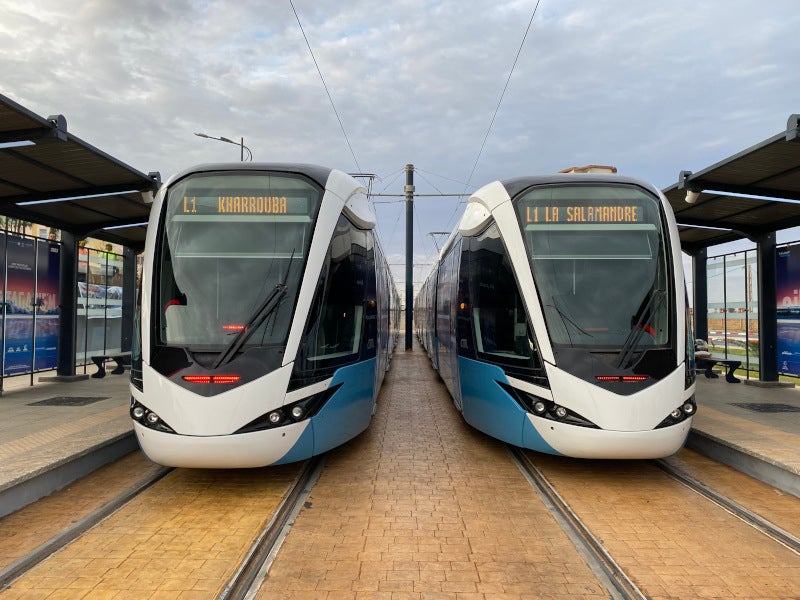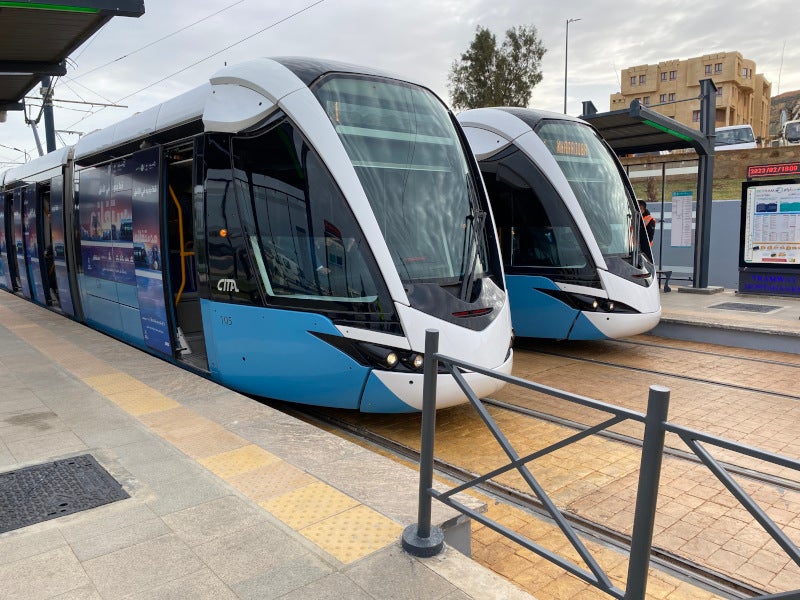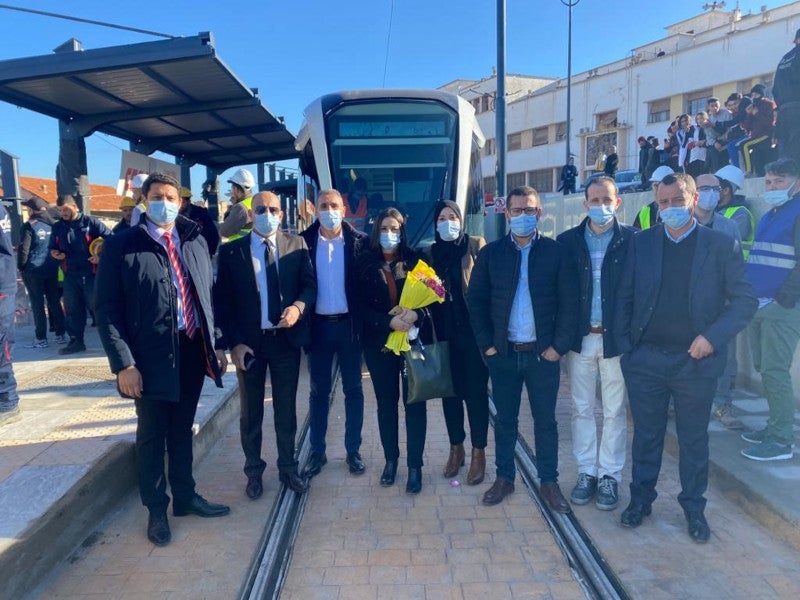The Mostaganem tramway is the seventh tramway to enter commercial service in Algeria. It can transport 10,000 passengers a day.
Owned by Entreprise du Métro d’Alger (EMA), the tramway is operated by SETRAM, an Algerian tramway operating company. The new tramway system became operational in February 2023.
The estimated investment in the project was DA26.5bn ($187m).
Location of the tramway
The Mostaganem tramway is developed in the port city of Mostaganem, the capital of the Mostaganem province. The line runs through densely urbanised areas and connects different districts, providing access to the city centre and different stations.
Mostaganem became the latest city to host a tramway system after Algiers, Oran, Constantine, Sidi Bel Abbés and Ouargla in Western Algeria.
Mostaganem tramway development details
The tramway project was originally awarded to a consortium comprising construction company Corsan-Corviam Construccion (72%) and transport solutions provider Alstom (28%), under a turnkey model.
Construction began in August 2013 but was interrupted in 2016 after Corsan-Corviam Construccion filed for bankruptcy. It was resumed in 2018 after the contract was awarded to COSIDER, a civil engineering company.
Mostaganem tramway details
The 14.2km-long Mostaganem tramway system features two double-track sections along with 24 stations, an operations and maintenance centre and a depot area.
The 12.2km first section runs from Salamander station to Kharouba station, passing through vital areas including universities, hospitals and cultural and leisure centres. The section has 20 stations and a capacity of 3,300 passengers per hour in each direction during peak times.
The 2km-long second section includes two stations and connects the Gare SNTF station to the new La Nouvelle Gare Routiere bus station. The line can transport up to 5,000 passengers per hour in each direction during rush hours.
In addition, the lines have eight electrical substations, 33 intersections, five relay parks, four exchange hubs, three hoppers and 23 counters. The line runs on three hoppers with a width of 9.4m and a minimum height of 5m installed at a distance of 370m, 358m and 131m. They are designed partially in an open-buttressed trench and partially in a covered trench.
The first test run for the tramway was conducted in December 2020, followed by technical tests in March 2022. The technical tests included verification of the electrical and mechanical functions of the trains, including braking components and electric traction systems.
Rolling stock for the Mostaganem tramway
The tramway system operates 25 Citadis trams, which can run at a commercial speed of 70km/h. The 44m-long Citadis trams can transport 400 passengers and operate on three motorised bogies and one carrying bogie.
The trams feature an inbuilt low floor and 12 side doors to allow passenger movement and access for all, particularly those with limited mobility. They are fitted with air conditioning, security cameras, baby strollers and wheelchair slots and passenger information screens.
The design of the trams reflects the image of the city, with the exterior featuring lively colours resembling the sea and the coast of Mostaganem. The tram’s interior features dark blue mosaic patterns inspired by the city’s cultural legacy.
Contractors involved in the Mostaganem tramway
The contract for the Mostaganem tramway project was awarded to Alstom and COSIDER. The scope of work for Alstom included the supply of telecommunications and signalling systems, integrated systems, tracks, catenaries, substations, ticketing and depot equipment.
COSIDER is responsible for civil engineering works, which include the rail lines, catenary and traffic light signals.
CITAL was awarded the contract to supply trams for the project by EMA. It is a local joint venture established in 2010 and is owned by Algerian partners (51%) and Alstom (49%). The trams were manufactured at the company’s Annaba site in northeast Algeria.
TERRASOL, a geotechnical consulting company, was responsible for drafting a technical report, as well as a technical note for the project.
Portugal-based engineering company TPF Consultants carried out the detailed design and execution study and also offered technical assistance to Alstom.
Yuksel Proje, a planning and design firm, was contracted for the tramway design and construction supervision.
Safety assessment services provider CERTIFER conducted the safety evaluation of the tramway.
Fortis Tamesis, a civil engineering company, performed civil engineering works for the Mostaganem tramway project.






